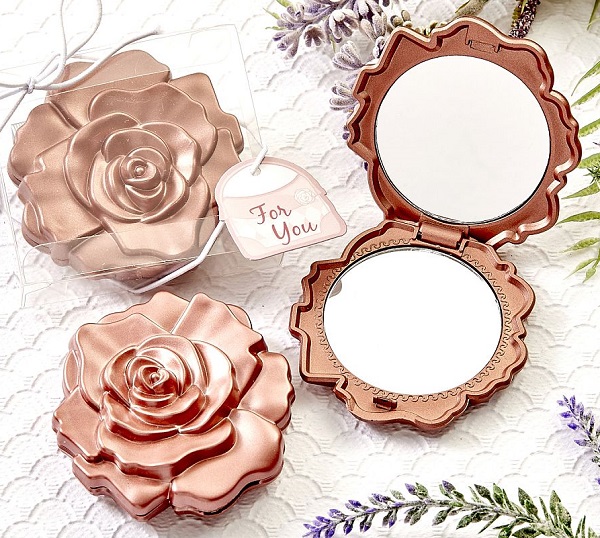FWP:
This feels like a verse of mood. For what else does it leave us with except that improbable, irresistible vision of the mirror opening out ardently, like a rose, to embrace the beloved's reflection? Where the rose has a hundred petals, the mirror has a hundred kinds of 'relish' and pleasure. Where the rose is soft, the hard metal mirror now melts, and its shape flows out at the edges, seeking to encompass the beautiful vision.
But the vision is melancholy too, for we know, of course, that the mirror will fail. The beloved's 'mischievousness' extends to her image as well: she is elusive, and the mirror will find that her reflection escapes its ardent, or even voluptuous, embrace.
Moreover, once the mirror has acquired the (metaphorical) softness and petals of a rose, it has no doubt acquired the rose's doom as well. Close to the heart of ghazal imagery is the idea that when the rose 'smiles' or 'laughs' by opening its petals into full bloom, its death is only a few days away. The flower-like mirror is as doomed as the rose-- or as the lover.
On the rich possibilities of the 'embrace of leave-taking', see {57,6}.


Nazm:
The color/mood of your visible reflection is so mischievous, or the whole resemblance is full of such mischievousness, that the embrace of the mirror turned into the embrace of the rose. And your reflection, having caused the mirror to blossom like a rose, itself like a spring breeze emerged from its embrace. Here by mentioning the mischievousness of the reflection is meant the restlessness and mischievousness of the beloved herself. (259)
== Nazm page 259